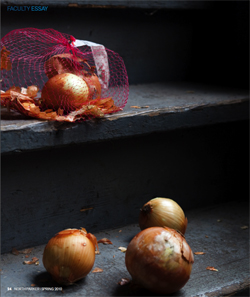
Aujourd’hui, nous sommes tous haïtiens! A rallying cry for solidarity with Haitians in the midst of one of the greatest humanitarian emergencies in the history of the Americas, the words hang in the air. Today we are all Haitian! But what of yesterday? What of tomorrow? Does it take devastating earthquakes for us to turn our attentions to the plight of our neighbors? How long until we cast our eyes elsewhere?
As politicians, the military and nongovernmental organizations scramble to address Haiti’s immediate and long-term needs, so too have ordinary citizens pledged to help. The outpouring has been tremendous. Hundreds of millions of dollars from nations all over the world will help Haiti rebuild its capital city, its residential areas and infrastructure, and its industry. All hope that Haiti will ultimately have stronger buildings, better services, and more jobs.
Yet will the giving meet the need? Already, the same media that projected into our every waking moment wrenching images of the devastation in Port-au-Prince now bandies about “donor fatigue.” Official estimates suggest that rebuilding Haiti will require 10 years of sustained effort and resources.
How long before we as nations and as individuals are worn out by the mere mention of Haiti? We have a track record of complacency vis-à-vis our little neighbor to the south. Haiti has long been the poorest country in the Americas. Before natural disasters came colonialism, war and, finally, an improbable freedom. Yet even in the midst of the earthquakes, American cynics publicly disparaged Haitians for their plight.
So what is the responsibility of the rich nations toward nations in need? After all, the U.S. is in the worst recession since the end of World War II. And what is our responsibility as individuals toward other human beings in need? How we respond to these questions both as a people and as individuals demonstrates our beliefs about what it is to be rich, to be human, and to be persons of faith.
I am struck by how deeply the news of the earthquakes in Haiti unsettled me. Yet the images that woke me in the middle of the night were not Haitian. The disaster in Haiti made me relive a human tragedy that unfolded while I was a student in New York. A lone resident from my building still held onto his rent control apartment decades after the university had bought the building and gentrified it for student use. He was an old stooped Asian man. Maybe he was Korean? I don’t know. I never spoke to him.
I remember noticing that the old man sure liked onions. He would carry bags and bags of them from the train, across the expanse of the large campus, and up four flights of stairs. The janitor mentioned once that the old man was a widower. I figured he didn’t know how to cook. Year after year, I saw the man trudge up those stairs, thinner and thinner. I never saw a soul visit him. Then one August, I called the janitor because the smell emanating from the fourth floor was noxious. The old man had died.
I was never unkind to the old man. But not once had I knocked to see that his heat was on or that his air conditioning was working. Never once had I left a bag of groceries at his door or shared a bowl of soup from my crock-pot. It never occurred to me to invite him to my annual “stray dog” Thanksgiving gatherings. I simply went about my business and let him go about his.
When he passed, I mourned the old man. I wondered what his life must have been like. What sorrows and joys had he known? I marveled at his resilience and his dignity. I imagined he might have been a fighter pilot or a musician or a beatnik when he was young. Had he had a family? Where were they? I wished I had even once offered him a small kindness.
The experience of turning a blind eye taught me to at least try to be fully present to my fellow sojourners in this life. I want to pay attention. I want to notice. I want to help out. As an individual, I have grown to feel a spiritual imperative to love others, even when love demands putting myself out. Embracing this visceral need to connect—despite competing priorities—has put me in touch with my own humanity, has brought me meaningful relationships, and has affirmed my faith in a loving God.
As a nation, I wonder whether we too might ultimately be restored to health and stability by tightening our belts, rolling up our sleeves, and helping out in the world. It is worth considering the toll of ignoring our neighbors in need. What remarkable leaders, artists and inventors, and great thinkers do we go without because they do not survive poverty, injustice, or despair? What enmity do we sow in the world by our indifference to human suffering? How does our negligence actually dehumanize us?
When I reflect on the faith and courage and strength and dignity of the Haitian people, those proud descendants of heroic slaves who attained freedom against all odds and then elected a priest as president, I am humbled and grateful to take part in North Park University’s campuswide initiatives to establish a benevolent relationship with Haiti and to help rebuild Haiti—however long it takes.
Dr. Jennifer Morrissey heads the department of French and French studies. She holds a Ph.D. in French and romance philology from Columbia University, a D.E.A. in French literature from the Université de Paris, and a B.A. in International Relations from the University of Pennsylvania. Recently, she was nominated to the executive committee of the American Association for Teachers of French. Her passions include French advocacy and volunteer work.
View the latest edition of the North Parker online.


